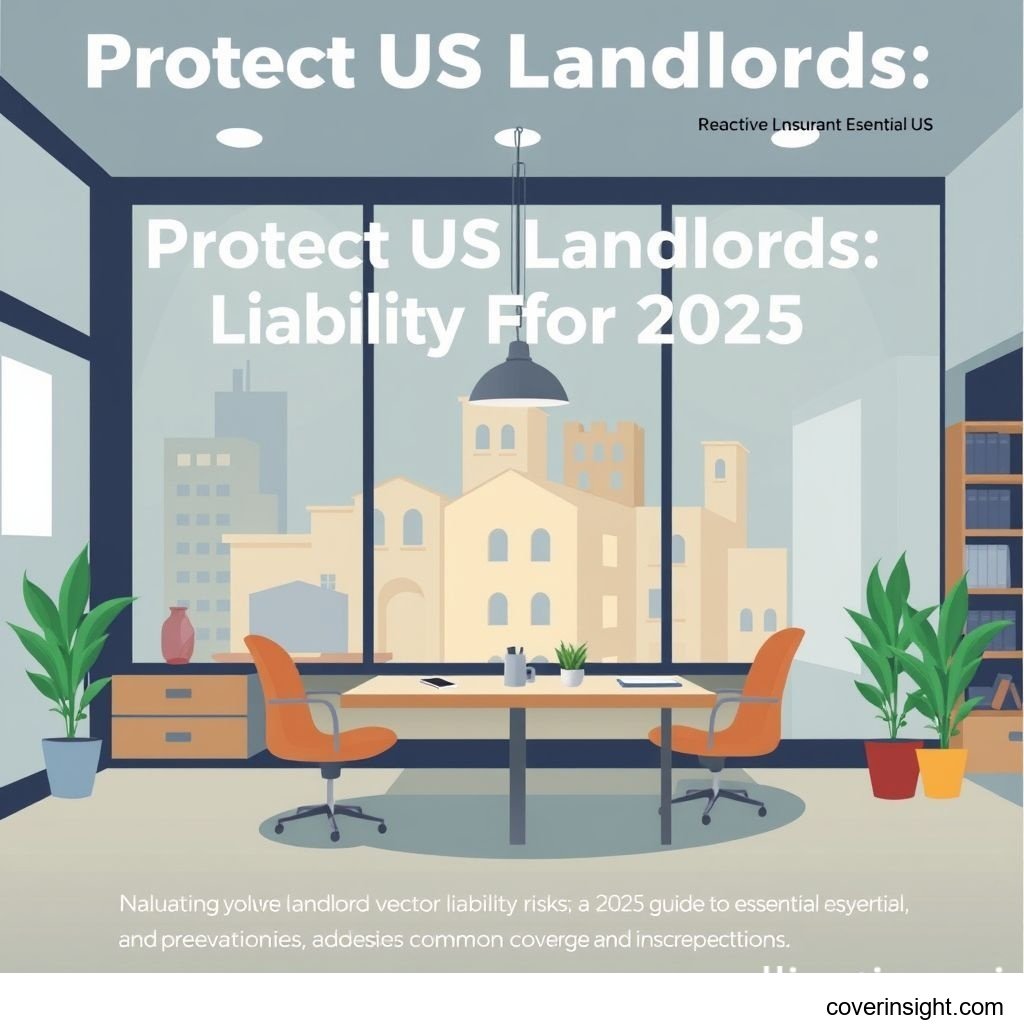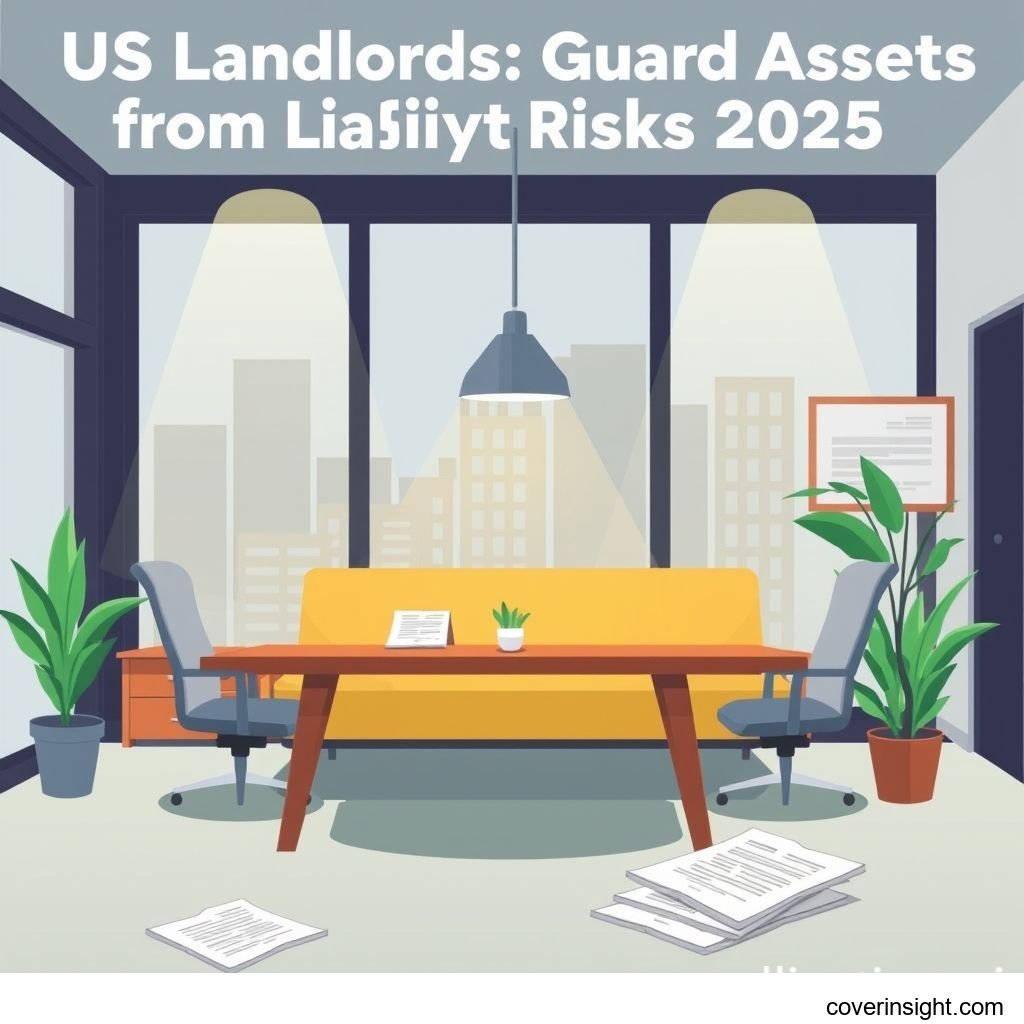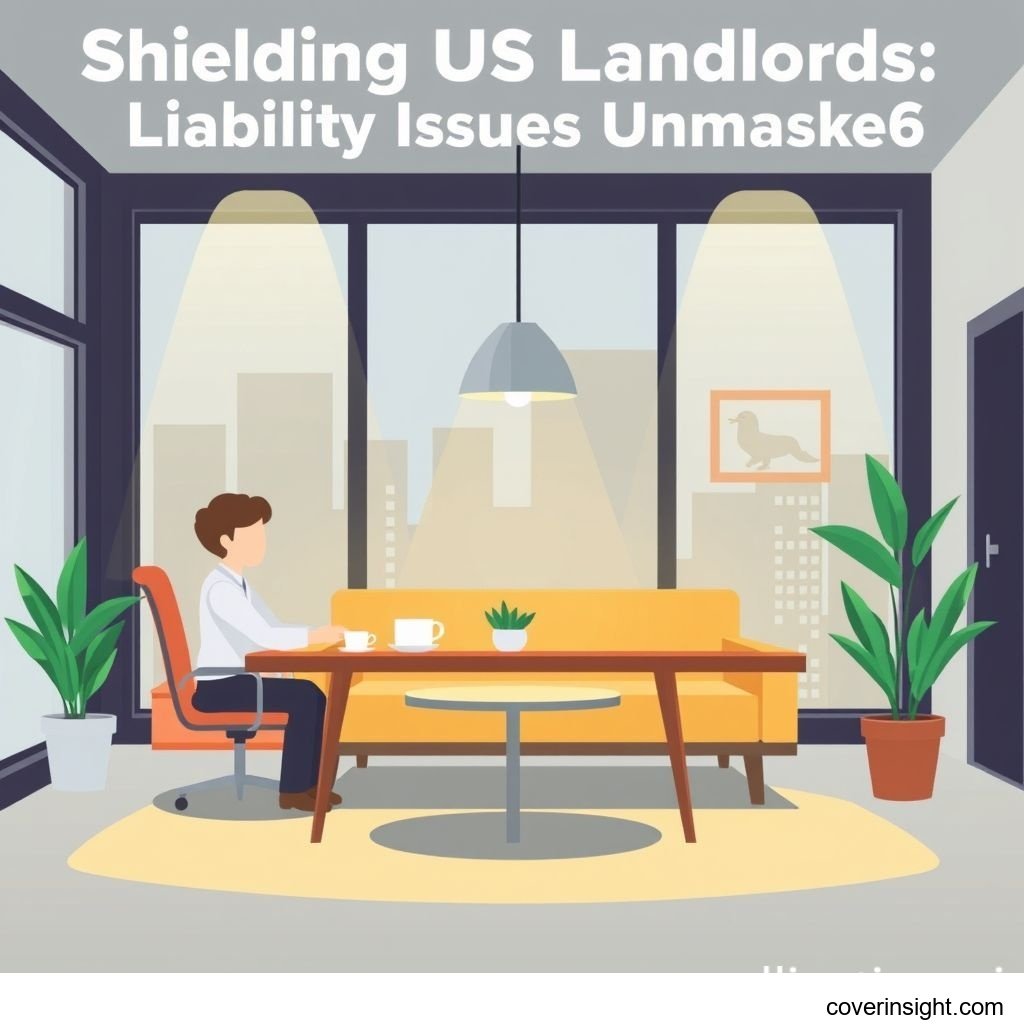Protect US Landlords: Liability Essentials for 2025
Introduction
In the dynamic landscape of real estate, US landlords in 2025 face an increasingly complex web of liability issues. From slip-and-fall accidents to property damage claims and even allegations of discrimination, the potential for lawsuits is a significant concern that can quickly turn a profitable venture into a financial nightmare. Understanding the nuances of landlord liability insurance isn't just about ticking a box; it's about safeguarding your assets, ensuring peace of mind, and maintaining the viability of your investment. This guide will walk you through the essentials, helping you navigate the sometimes murky waters of protection for your rental properties.
Coverage Details
Navigating the specifics of landlord liability coverage can feel a bit like reading a foreign language, but at its core, it's designed to protect you from the financial fallout of third-party claims.
What’s Included
Typically, landlord liability insurance steps in when you, as the property owner, are deemed responsible for injuries or damages that occur on your rental property. This usually includes:
-
Bodily Injury: This is the big one. If a tenant or guest is injured on your property and you're found negligent, this coverage can pay for medical expenses, lost wages, and pain and suffering. Think about a tenant tripping on a loose stair tread you knew about but didn't fix, or a guest getting injured by a falling gutter.
-
Property Damage: Should your negligence lead to damage to someone else's property—perhaps a leaky pipe you ignored causes damage to your tenant's belongings—this coverage helps with repair or replacement costs.
-
Legal Defense Costs: Even if a claim against you is baseless, defending yourself in court can be incredibly expensive. Liability insurance often covers these legal fees, including attorney costs, court fees, and settlements, whether you win or lose the case. This can be a real lifesaver, as legal battles can bleed you dry.
-
Wrongful Eviction/Entry: Some policies may also offer protection against claims of wrongful eviction, unlawful entry, or even libel/slander related to your tenant interactions.
Common Exclusions
While broad, landlord liability isn't a magical shield. There are common exclusions to be aware of:
-
Intentional Acts: If you intentionally cause harm or damage, your policy won't cover it. That's a given.
-
Damage to Your Own Property: This coverage is for third-party claims, not for damage to your rental unit itself (that typically falls under your property insurance, like a landlord policy's dwelling coverage).
-
Neglect/Lack of Maintenance: While the policy covers your negligence, some instances of gross neglect or failure to maintain the property that directly lead to issues like widespread mold, pest infestations, or structural collapses might be excluded if it's proven you knowingly allowed a hazardous situation to persist without attempting to fix it. This is why regular maintenance is not just good practice, but a liability mitigator.
-
Wear and Tear: Gradual deterioration of the property isn't covered.
-
Floods and Earthquakes: These are typically excluded and require separate, specialized policies.
Cost Analysis
The cost of landlord liability insurance isn't one-size-fits-all; it's influenced by a variety of factors.
Price Factors
Several elements play a role in determining your annual premiums:
-
Location: Properties in high-crime areas or those prone to natural disasters might see higher premiums. Even within states, urban areas often have different risk profiles than rural ones. For instance, according to data from the National Association of Insurance Commissioners (NAIC), average premiums can vary by hundreds of dollars annually simply based on ZIP code, reflecting local risk factors.
-
Property Type and Age: Multi-unit dwellings generally carry higher liability risks than single-family homes, and older properties might have hidden hazards (like lead paint or outdated wiring) that can push costs up.
-
Coverage Limits and Deductibles: Choosing higher liability limits (e.g., $1 million vs. $300,000) will increase your premium, as will lower deductibles.
-
Tenant Screening: Believe it or not, your tenant screening process can influence your risk. A rigorous screening process that helps you select responsible tenants can subtly signal lower risk to insurers.
-
Claims History: A landlord with a history of frequent claims will likely pay more.
Saving Tips
Looking to keep those premiums in check? Here are a few smart strategies:
-
Bundle Policies: Many insurers offer discounts if you bundle your landlord liability with other policies, such as your primary homeowner's insurance or auto insurance.
-
Increase Your Deductible: Opting for a higher deductible means you'll pay more out-of-pocket if a claim occurs, but it significantly lowers your monthly or annual premium.
-
Improve Property Safety: Proactively addressing potential hazards like installing handrails, improving lighting, securing pools, and ensuring smoke detectors are functional can demonstrate responsibility and potentially lead to discounts.
-
Maintain Good Credit: A strong credit score can sometimes translate into lower insurance rates, as insurers view it as an indicator of reliability.
-
Shop Around: Don't just stick with the first quote. Get quotes from multiple providers. Websites and resources like "Insurance Resources Global" can provide a good starting point for comparison, while "US Insurance Home" often features specific regional providers.
FAQs
How much does landlord liability insurance cost? The cost varies widely, but typically ranges from a few hundred dollars to over a thousand dollars per year, depending on the factors mentioned above. A single-family rental might cost $300-$600 annually for basic coverage, while a multi-unit apartment building in a high-risk area could easily exceed $1,500.
What affects landlord liability premiums? Premiums are influenced by location, the type and age of the property, the chosen coverage limits and deductibles, your claims history, and even your tenant screening practices.
Is landlord liability insurance mandatory? Federally, no. However, most mortgage lenders will require you to carry adequate landlord insurance, which includes liability coverage, as a condition of your loan. Additionally, while not explicitly mandatory in many states, the high risk of liability lawsuits makes it a practically indispensable part of being a landlord. Some states may have specific regulations or local ordinances that indirectly necessitate it. For example, in New York, a 2022 report from the Office of Court Administration highlighted that premises liability lawsuits against property owners are consistently among the highest volume of civil actions, making coverage a practical necessity to avoid financial ruin.
How do I choose the right landlord liability coverage? Assess your risk tolerance, the value of your assets, and the specifics of your property. Compare quotes from several reputable insurers, paying close attention to the coverage limits, exclusions, and deductibles. Don't hesitate to consult with an insurance agent who specializes in landlord policies. You can also refer to your State Insurance Departments for consumer guides and regulations relevant to your specific area.
What are the consequences of no landlord liability coverage? Going without coverage is playing with fire. A single serious incident—like a tenant suffering a debilitating injury due to a neglected repair—could result in a lawsuit costing hundreds of thousands or even millions of dollars. Without insurance, you'd be personally responsible for legal fees, medical bills, and any damages awarded, potentially leading to the loss of your rental property, personal assets, and even bankruptcy. Consider the case of a rental property in Phoenix, Arizona, where a landlord faced a $1.2 million judgment in 2023 after a tenant's child was severely burned by a faulty water heater that previous tenants had reported as malfunctioning, but the landlord never fixed. The landlord's lack of adequate liability insurance meant the judgment went directly against his personal assets, illustrating the severe financial fallout.
Author's Insight & Experience: Based on my experience living in the US and observing countless landlord-tenant dynamics, one thing is crystal clear: neglecting liability insurance is penny-wise and pound-foolish. I've seen firsthand how a seemingly minor issue, like a loose handrail or a slightly uneven sidewalk, can escalate into a financially devastating lawsuit if a tenant or guest gets hurt. It’s not just about covering worst-case scenarios; it’s about acknowledging the inherent unpredictability of human interaction and property maintenance. Having robust coverage isn't just a safety net; it's a foundational pillar of a sustainable and stress-free real estate investment strategy. It allows you to sleep soundly, knowing you're prepared for whatever curveballs life—and the legal system—might throw your way.








Comments